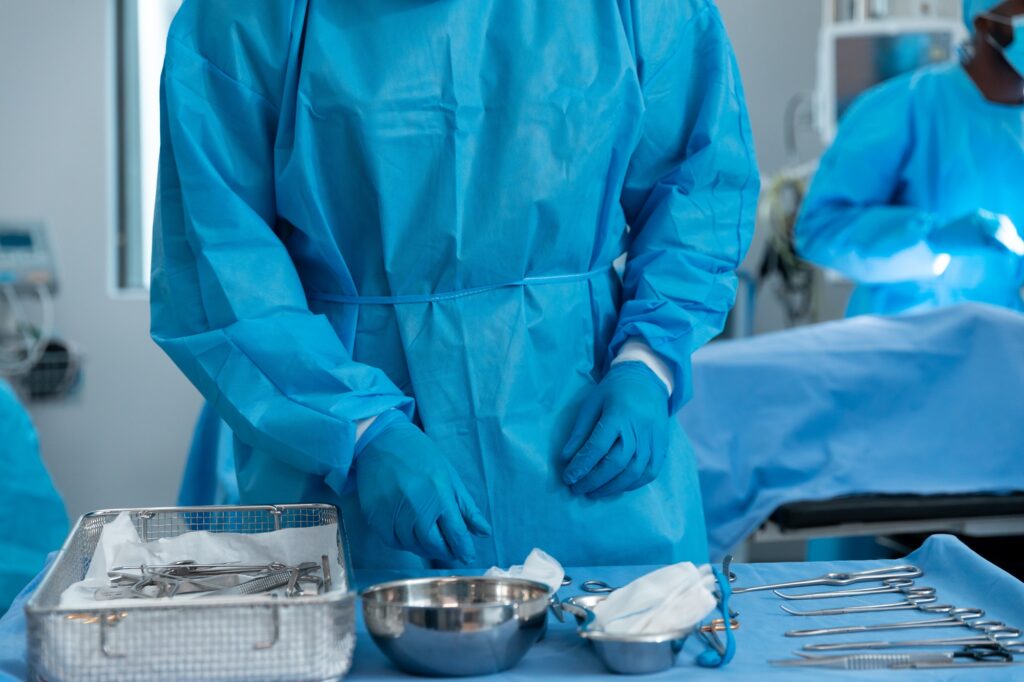It is sometimes asserted, that a surgical operation is or should be a work of art… fit to rank with those of the painter or a sculptor. .That proposition does not admit to discussion. It is a product of the intellectual innocence which I think we surgeons may fairly claim to possess, and which is happily not inconsistent with a quite adequate worldly wisdom.
Wilfred Trotter (1932)
There is a part of being a surgeon, which compares with trade, manual labor or may be skilled artistry? You know what to do and why to do it. The next question is how.
Proper technique of given operative procedure is a sign, that you know what are you doing, and you have done it before. When I was with Dr Altemeier in Cincinnati, every operative procedure had to be done properly, his way. Even surgical knots had to be tied using an accepted technique. His surgical details were developed over the years of practice and the system worked well. When you were in private practice, on your own, you could do whatever you wished, but at least you had proper fundamentals to build on. Quite often I’ve seen residents left on their own in their training, learning by themselves with trial and error, and results were not that great. Good surgical residency programs have certain standards delineated, and rebels are not tolerated well in that stage.
In the previous post, I mentioned that working long hours wasn’t the main factor for residents committing errors. I also mentioned, that surgery is a team sport. The best results with fewer errors were achieved by high-volume surgeons in hospitals with high volume of patients. The development of a working system from admission, through pre-op area, OR stay, recovery room, ICU/CCU and proper floor care is paramount and so is communication between surgeon, anesthesiologist and consultants. And if his partners are not familiar with the case while covering for him, the patient’s care can be compromised. Recently, more and more subspecialists are being involved in a care of given patient. I call this “many doctors’ syndrome”. Sometimes, unfortunately, we have “too many doctors’ syndrome” when communication is faulty. When there is poor or no communication between doctors involved, invariably, patient’s care suffers. This is the main reason surgical errors happen. The entire system has to work seamlessly. Otherwise results can be disastrous. With so many things happening to the patient during the stay in hospital, the possibilities of errors are enormous. Sometimes I wonder why they are so scarce.
Within each specialty, skills required to practice evolve and change over time. Many years ago, in general and vascular surgery for instance, most procedures were being done with “open” methods, utilizing sometimes sizable incisions. Now more and more of surgeries are being done with “closed” or “endo” methods using scopes and catheters. The skills required for the less invasive procedures are quite different. However the “open” cases” still come frequently, especially through the ER. And when a surgeon is not familiar with these “ancient” techniques, patients are in trouble. We see that recent residents, while showing wizardry with scopes and catheters, do not have enough training in traditional surgical procedures.
Important factor are social skills of surgeon. Some people think, that how he relates to patients and referring physicians does not influence his picture as a doctor. Some even think that a good surgeon has to be rough around the edges, with poor manners, sometimes mean person. Nothing can be further from the truth. A pleasant, positive, cheerful personality quite often can compensate for poor performance in the OR. Even according to referring physicians and often in front of the patient’s family.
But there is one more ability, which takes a long time to acquire. In medical school, a young surgeon is being taught when and how to operate. Probably the most difficult decision to make, however, is to decide when NOT to operate, particularly when referring physicians and the patient’s family expect you to do so. Takes a lot of experience, willpower and tact to explain your thinking to people involved. And then take heat. For some people, it is easier just to do surgery and then blame poor results on bad circumstances.
Good surgeons know how to operate, better ones when to operate, and the best when not to operate.
Anonymous (although I wish I did say it)


